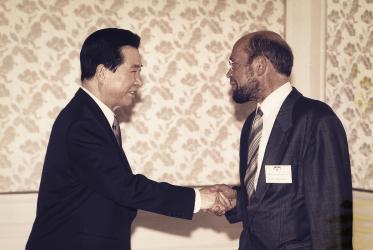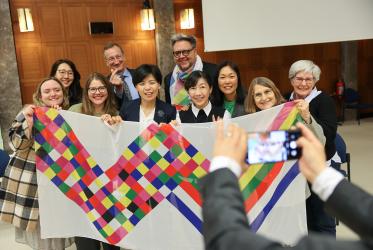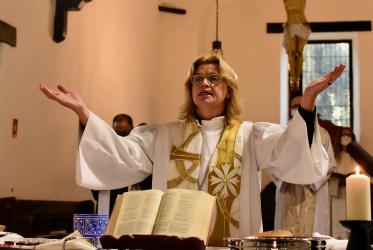Displaying 1 - 20 of 41
17 April 2024
Ecumenism in the Philippines means hope and resilience
22 August 2023
In Chile, “Churches’ ministry of reconciliation is key”
29 November 2022
Migrants in Argentina find listening ears and open hearts
04 November 2022
Squid Game and Ganggang Sullae: workshop reflects on youth poverty
16 September 2022


















